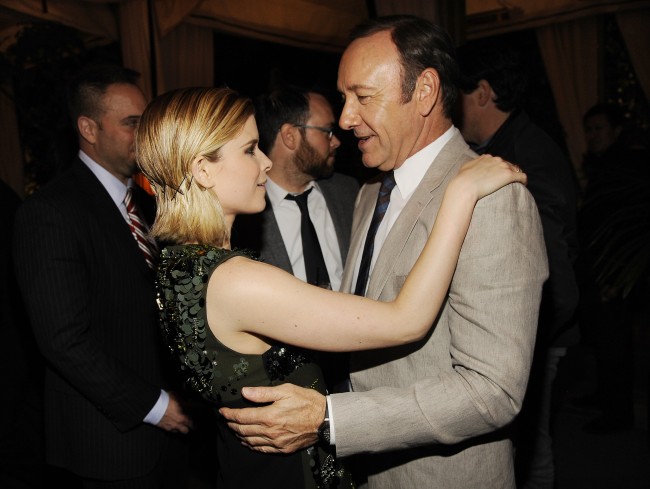Mic Wright’s Remotely Furious: House of Cards, Line of Duty And Enough Spoilers To Kill A Guardian TV Reviewer
Spoilers spoilers spoilers: watch House of Cards and Line of Duty or you’re dead to me
IF you’re like a hipster version of the Likely Lads trying to avoid spoilers for House of Cards Season 2 and/or the incredible Line of Duty, stop reading now and pop back when you’re caught up. I’m not here to hold your hand or keep secrets for scriptwriters. Incidentally: Verbal Kint is Kaiser Soze, Snape was a double agent and the cake is a lie.
Now that’s out of the way, let’s thrust our hands into the guts of the matter. Both Line of Duty and House of Cards opened their second seasons with shock deaths for young women the audience was growing to like. In the case of Line of Duty, the young policewoman thrown out of a hospital window had less than 40 minutes to make her connection but still managed it thanks to the masterful scriptwriting of Jed Mercurio. House of Cards’ Zoe Barnes got a full 13 episodes in Season One to grow on us. By the end of the first episode in Season 2, she was under a train and out of the picture for good.
Fans of the original House of Cards will have been expecting the shock. Barnes was the American team’s take on Matty Storin, the hack hurled from the roof of parliament by Francis Urqhart as she screamed “Daddy!” in an Electra complex electrified ending. Barnes got a rather less showy ending, pushed beneath the wheels of a subway train by Kevin Spacey’s ever more demonic Frank Underwood. It still made me catch my breath but it was indicative of the general tone of Netflix’s House of Cards, its schlocky soap opera for West Wing fans.
Across the 13 episodes of Season 2, Frank manages to duck and weave through ever more preposterous threats while pushing through his plan to undermine President Garrett. Anyone who didn’t realise by about midway through episode 3 that he would achieve his aim of becoming President needs a crash course in drama tropes. Still, it was still delightful to see him take his spot in the oval office and kick off what can only be even more Nixonian machinations in Season 3.
If, like me, you binged your way through the 13 chapters in a couple of days, give it a rewatch. A speedy run through leaves you missing some of the great details Spacey and Robin Wright inject into their performances. House of Cards is neither as good as some of its super-fans and Netflix execs would try to persuade you nor as terrible as the terribly tedious and literally-minded Washington wonks moan. It’s fun. Cartoony enough to fire those guilty pleasure circuits but smart enough to stride around beside more serious drama. And don’t let anyone convince you The West Wing was any more realistic. They’re both fantasies, it’s just that House of Cards skews far darker.
The darkness in Line of Duty is relentless. While Series 1, which focused on Lenny James’s thief-taker turned corrupt cop, ended brutally, Series 2 opened with an episode that blew it out of the water. Keeley Hawes as DI Denton is a conflicted, confusing and angry character. Even now, two episodes in, the viewer is left wondering if she was complicit in the ambush that left a protected witness in intensive care and several fellow officers dead. Even following the assassination at the hospital and the death of Georgia, it’s still not clear if she’s really a wrong-un or just a good cop stuck in a bad situation.
Line of Duty deserves as many awards as Keeley Hawes, Martin Compston, Vicky McClure, Adrian Dunbar and Jed Mecurio can shove in their living room cabinets. The performances are so real and so raw that they elevate the already taut scripts into something extraordinary. The scene in which Denton confronted the anti-corruption cops with enough of their own skeletons to fill Ikea’s wardrobe section was astounding. If you’re not watching Line of Duty, you really aren’t watching television properly.
Posted: 24th, February 2014 | In: TV & Radio Comment | TrackBack | Permalink



